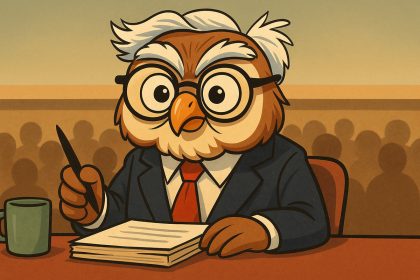Spending money is an American pastime. With a national saving rate hovering around 5%, it’s clear we collectively love to spend. And honestly, being able to enjoy our wealth is a beautiful thing. It’s something more personal finance enthusiasts like me—and readers of Financial Samurai—could probably do more of.
But like with most things, moderation is key. Overspending can trap us in the rat race forever. It can increase our anxiety about job security or unexpected health issues as we live paycheck to paycheck. And if you have kids, excessive spending might even put them at a long-term disadvantage, creating a cycle of financial stress.
In this post, I want to share a personal experience that helped me understand just how emotionally difficult it can be to stop spending, even when we know we should.

That Sinking Feeling of Being Judged
After dropping our kids off at parkour class, my wife and I took a stroll to Haight-Ashbury for some ice cream at Ben & Jerry’s. It’s a nostalgic spot I first visited back circa 1993 on free cone day with a line several blocks long. Jerry Garcia from the Grateful Dead was still alive, and he was performing that day.
On our walk over, we passed funky odors and colorfully dressed folks who had just finished the Bay to Breakers race. When we finally reached the store, I asked the attendant if they had any unique flavors unavailable in grocery stores. She pointed to a sorbet, but we wanted ice cream.
Then came the sticker shock: $8.75 for one scoop, $13 for two. A waffle cone? Another $3.75. My frugal brain screamed, “This is insane! You can get a whole pint on sale for $5!” But I felt too embarrassed to back out in front of my wife. So I caved: one scoop in a waffle cone, $14 total.
We enjoyed it—triple caramel chunk—but I felt like a fool. On the walk home, I turned to my wife and said, “I’m never buying Ben & Jerry’s waffle cone ice cream again.”
The Shame of Not Spending
I didn’t stick to my frugal instincts because I didn’t want to look cheap. Even after years of being together, I still didn’t want to disappoint my wife.
This wasn’t just about ice cream. I had told her for several months that I was open to renting a house in Hawaii for our upcoming five week summer trip. When the stock market tanked in early April 2025, I figured, why not spend the money instead of losing it all in the stock market? At one point, we were down around $1 million, a gut-wrenching amount for dual unemployed parents. She agreed. YOLO and decumulate, right?
But the cheapest rental I found that we both liked was $24,000 a month after taxes, utilities, and fees. Yikes! That’s a lot when we could just stay at my parents’ house for free. Sure, it’s not ideal for privacy and puts a lot of pressure on my mother as a host, but it’s great for family bonding. And $24,000 invested in our kids’ custodial accounts today could more than double to $50,000 in 11 years at a 7% return. That could help pay for college or help them buy a home.
My wife was disappointed, and I don’t blame her. Living with in-laws isn’t easy. And she knows that hosting is especially hard on my mom, who needs her space—something that’s tough to maintain with six people under one roof, especially when two of them are particularly loud and rambunctious. My wife is also the planner for all of our travel logistics, so my indecision was starting to frustrate her.
But I just couldn’t get myself to pull the trigger, even if it is within my vacation spending guide. I felt bad for letting my wife down. If you’re curious, below is the picture of the $24,000/month rental. Cute, right? But not for $24,000/month.

Tried to Spend Again After Several Big Wins
After about 35 days of painting, de-weeding, staging, and prepping our old house post-tenants, we finally sold it for a solid profit. Selling a home is often a stressful process, but we accepted a preemptive offer after a couple rounds of countering and ultimately hit my target price.
I used about 70% of the proceeds to buy the stock market dip over a 50-day stretch. First we were losing, which felt horrible given the home was such a stable investment. Eventually, the S&P 500 clawed back its full 20% loss, and I locked in gains on half our position. Our allocation for this important portfolio shifted from 100% stocks to a more balanced 60/40, as the S&P 500 returned to trading at 22X forward earnings—an expensive level in my book.
To top it all off, Millionaire Milestones made the USA TODAY bestseller list—a distinction earned by only ~0.04% of authors. I spent 2.5 months grinding away on marketing through guest posts on CNBC and MarketWatch, publishing related content on Financial Samurai, running consulting promotions, and giving interviews.
Surely, this triple win deserves a little celebration, right? I was exhausted after working so hard and taking so much risk. So I floated the idea of renting a house for a month again. YOLO, baby!
So Hard to Find Value When Booking a Vacation
My wife was cautiously optimistic. But as I searched more, I still couldn’t justify spending $24,000 for that house we looked at earlier because I really wanted a pool if we were going to shell out big bucks. Unfortunately, homes we considered with pools and views were going for $50,000 to $85,000 a month. A ridiculous sum of money. No thanks.
My wife could have cared less about a pool. She just wanted somewhere clean with two bathrooms, AC, a kitchen, and laundry that we could have to ourselves. Then we could have planned meals and family time with my parents at their convenience.
The thought of spending $24,000 on rent for just one month stung deeply, especially since I haven’t been a renter since 2002, when I was 25 years old. On top of that, it was emotionally draining to buy the dip and watch losses pile up for three to four weeks straight. Parting with that hard-earned cash felt too psychologically and financially painful.
I even asked my dad for advice since there are a lot of vacation rental scams out there too. During the stock market crash, he said, “Stay with us.” After the recovery, I showed him new options, and he still said, “Stay with us.” So I listened, as any good son would.
As a result, we will save $24,000 on rent and now have $800/day to spend on food, activities, and more. That feels amazing! All we can eat poké here we come! But I could tell my wife wasn’t as thrilled. Ah, the feeling of disappointing her again despite the wins we had.

Ice Cream as Emotional Compensation
So when the Ben & Jerry’s attendant asked, “How many scoops?” I flashed back to all of this. I felt ashamed that I couldn’t follow through on the vacation rental. I’m the provider, gosh darn it. I didn’t want to let my wife down again. So I said yes to the overpriced cone at least.
But afterward, I still felt stupid. I knew I could get a more delicious matcha soft ice cream in a waffle cone at the mall for $6.90, or half the price.
Spending $14 on ice cream was my emotional Band-Aid for not spending $24,000 on the vacation rental. But it didn’t fully patch the wound. I still feel like I need to do more.
As someone who grew up middle class with frugal parents, there’s simply no way I can justify spending that much on a temporary living arrangement with no equity. I’ve spent too much of my life focused on building wealth, not spending it.
Besides, at least 70% of the joy of being in Hawaii comes from just being there, enjoying the weather and outdoors. I don’t plan on staying inside for most of the day.
Fear Of Being Judged Is Why We Overspend
This experience helped me realize something important: We often spend money not because we want or need to—but because we don’t want to be judged, especially by loved ones. Even after 26 years together, I still didn’t want to disappoint my wife.
Unlike some personal finance or FIRE enthusiasts, I don’t take being called or viewed as cheap as a badge of honor. Instead, I take offense to it because I’m fully spending my money according to my values. And we don’t all value the same things, so who is anybody to judge?
This need to appear generous, carefree, or successful may push us to spend more than we should. Our insecurities lead us to waste money on things we don’t value. We’re not always spending for joy, we’re spending to protect our image.
I don’t care what others think, only what my wife and children think. As men, we often work tirelessly to provide for our families, yet there are still moments when we feel like it’s not enough.
Related: Feeling Like A Burden Is A Terrible, Terrible Thing
The Solution to Overspending
The next time you feel pressure to spend, pause and revisit your core values and financial goals. If you don’t know what they are, figure them out—fast. Ask yourself: Does this expense align with who I am and what I want for my future? If the answer is no, then don’t spend. Love yourself enough to follow your values.
And if you’re in a relationship, talk it through. Being on the same page financially is important for a successful, long-term partnership. The last thing your partner wants is for you to be grouchy or regretful after spending. At the same time, you don’t want to let your partner down and feel constrained, especially if you have the funds. Resentment will only build.
In our case, the compromise I came up with is to spend weekends at my aunt’s beach house on the other side of the island to give everyone some breathing room, assuming she’s okay with that. The only problem is my aunt hasn’t said yes, yet! She’s traveling.
Another solution is to spend one or two nights at a beachfront resort in Waikiki or Kahala. I’m open to booking a Saturday night so we can make the most of the facilities on both Saturday and Sunday. Maybe we should do Friday night as well, but the kids get out from summer school at 3:30 pm on Friday, so is it really worth it? Perhaps I’m being too frugal again, but at least I’m offering up solutions. That’s progress!
Readers, do you think we mainly overspend because we are not secure with ourselves? Why do you think it’s so hard to stop spending despite knowing we should be saving and investing more? Is it silly to let other people judge us for how we spend our own money?
Earn Up to $300 Bonus with CIT Bank’s Platinum Savings – Ends May 27, 2025
With interest rates rising, saving money is more rewarding than ever. Until May 27, CIT Bank is offering a bonus of up to $300 when you open a new Platinum Savings account using promo code PS2025.
Here’s how it works:
- Deposit $25,000–$49,999 in new funds within 30 days and earn a $225 bonus
- Deposit $50,000 or more to earn the full $300 bonus
- Earn a competitive 4.10% APY on balances of $5,000 or more—10x the national average
There are no monthly fees, your account is FDIC insured, and it’s easy to manage everything online.
Learn more and open your account here – don’t forget to use promo code PS2025!
CIT Bank has long offered some of the highest savings rates around thanks to lower overhead from not having physical branches. So if you’ve got extra cash sitting idle, now’s a great time to maximize its interest rate. CIT Bank is an affiliate partner of Financial Samurai.
To expedite your journey to financial freedom, join over 60,000 others and subscribe to the free Financial Samurai newsletter. Financial Samurai is among the largest independently-owned personal finance websites, established in 2009. Everything is written based on firsthand experience and expertise.







